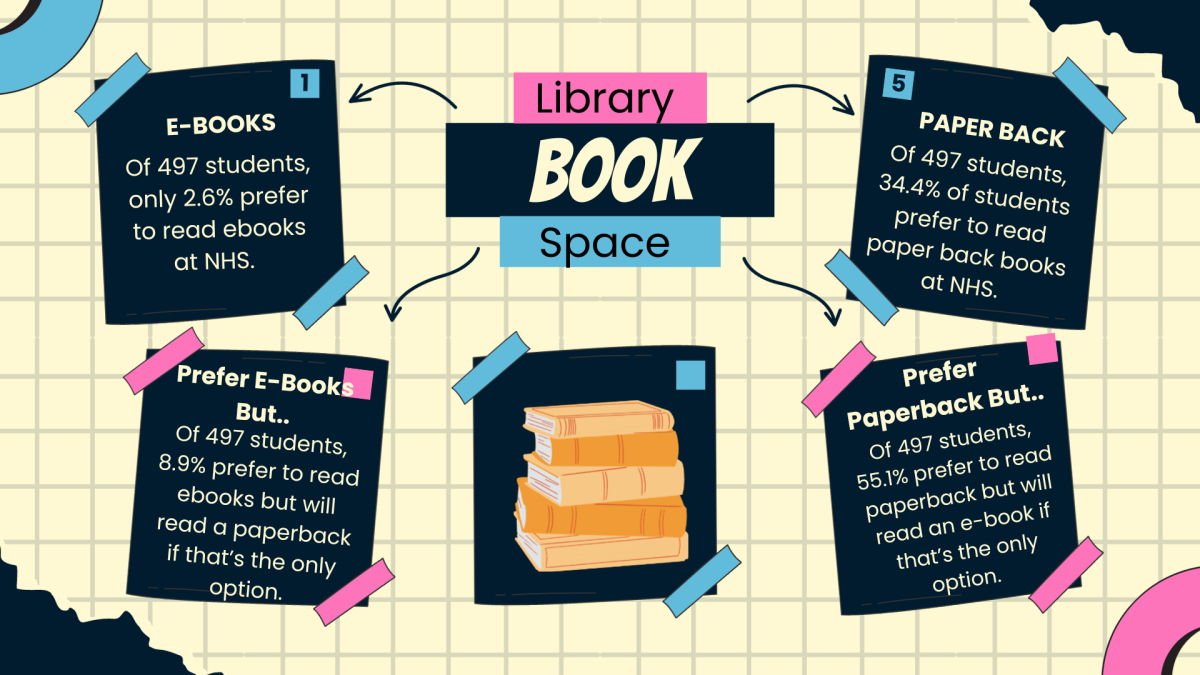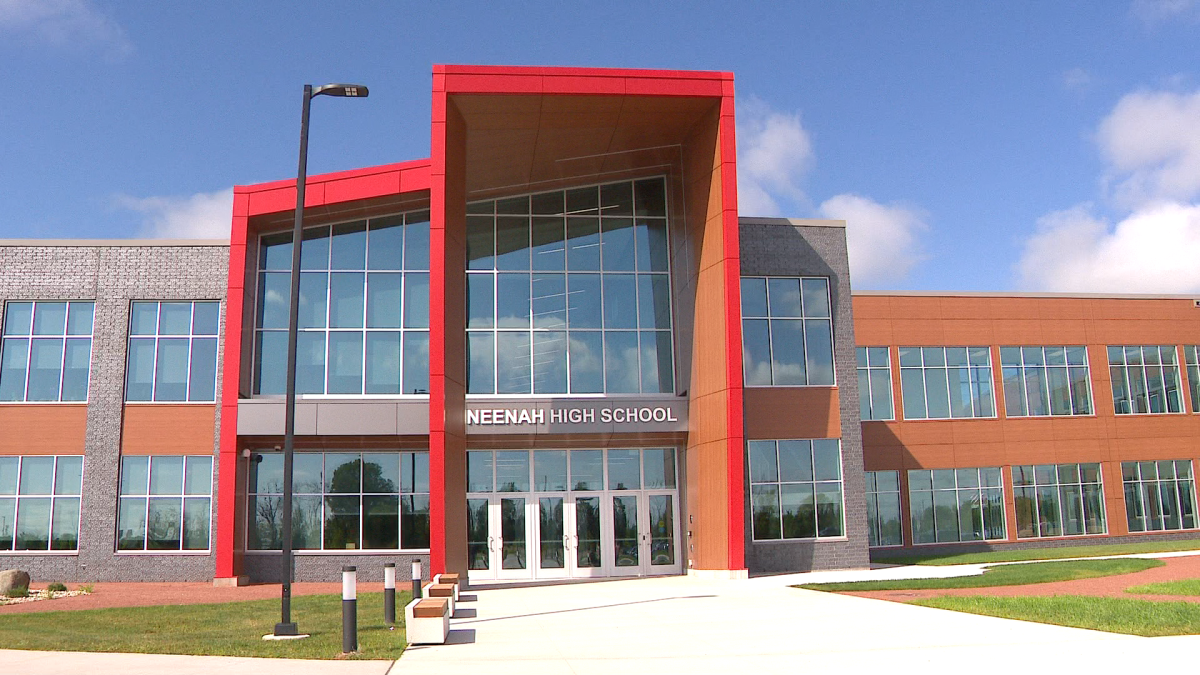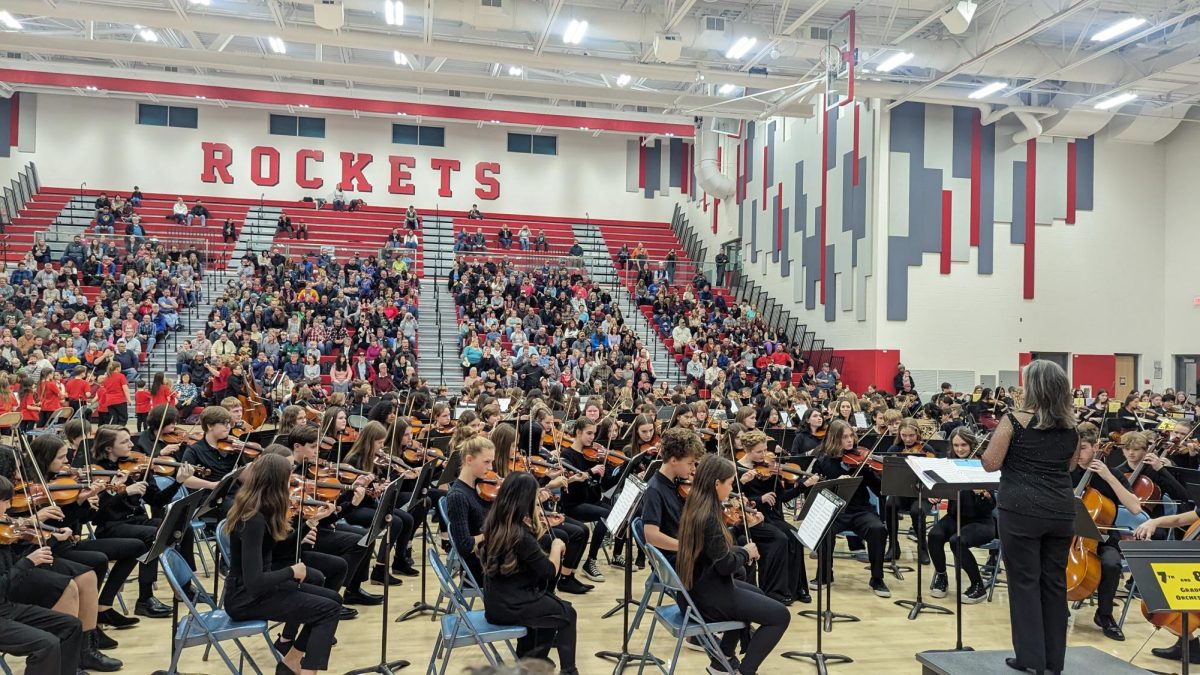The NHS library quickly fills up and Mrs. Jenn McMahon finds that the library has no more room for over 100 unopened boxes of books from the Neenah Middle School and incoming books as the 2023-’24 school year unfolds.
Coming into the new NHS building, Mrs. McMahon, instructional library technology specialist, was aware there would not be enough storage space when bringing all the paperbacks into the new space. They found themselves weeding, a common librarian term meaning sorting through books and getting rid of what they do not need anymore.
“Librarians always have to weed because if you think about it, every time you get new books, you have to make room for them,” McMahon said.
Because learning styles vary, a switch from traditional to more technology involving digital gadgets is pervading libraries. Many academic libraries are being challenged to upgrade from old fashioned hard copy resources to digital libraries including electronic books.
According to the National Library of Medicine, 74.6 percent of students prefer e-books because of ease to carry. In contrast, 66.7 percent of students prefer paperback books to study and make notes. In other words, if students prefer e-books, libraries do not need as many paperback books.
Of course, libraries service their clients and their needs matter.
With that being said, in a survey sent out to all English classes earlier this month, McMahon found a majority of students at NHS prefer to read a paperback book but will listen to an e-book if they have no other choice.
With those results, McMahon is trying to make an argument that people prefer to read paperback books. She has not only been gathering her own data through the survey that was sent out but also through different resources like Two Sides revealed that 65 percent of the population prefers paperback versus the 21 percent that prefer e-books.
With that research and data collected, Mrs. McMahon continues to weed through boxes of books that are aged, any book that is more than 5 years old that is not a classic, and has not been checked out in the last 5 years.
With the books that have been weeded, the NHS library donates overseas to villages in Africa through the International Children’s Funds or they often put books out on tables and let students choose books that they would like to keep and bring home.
Clearly, the NHS library avoids recycling paperback books as much as possible as they would much rather have them in kids’ hands.








